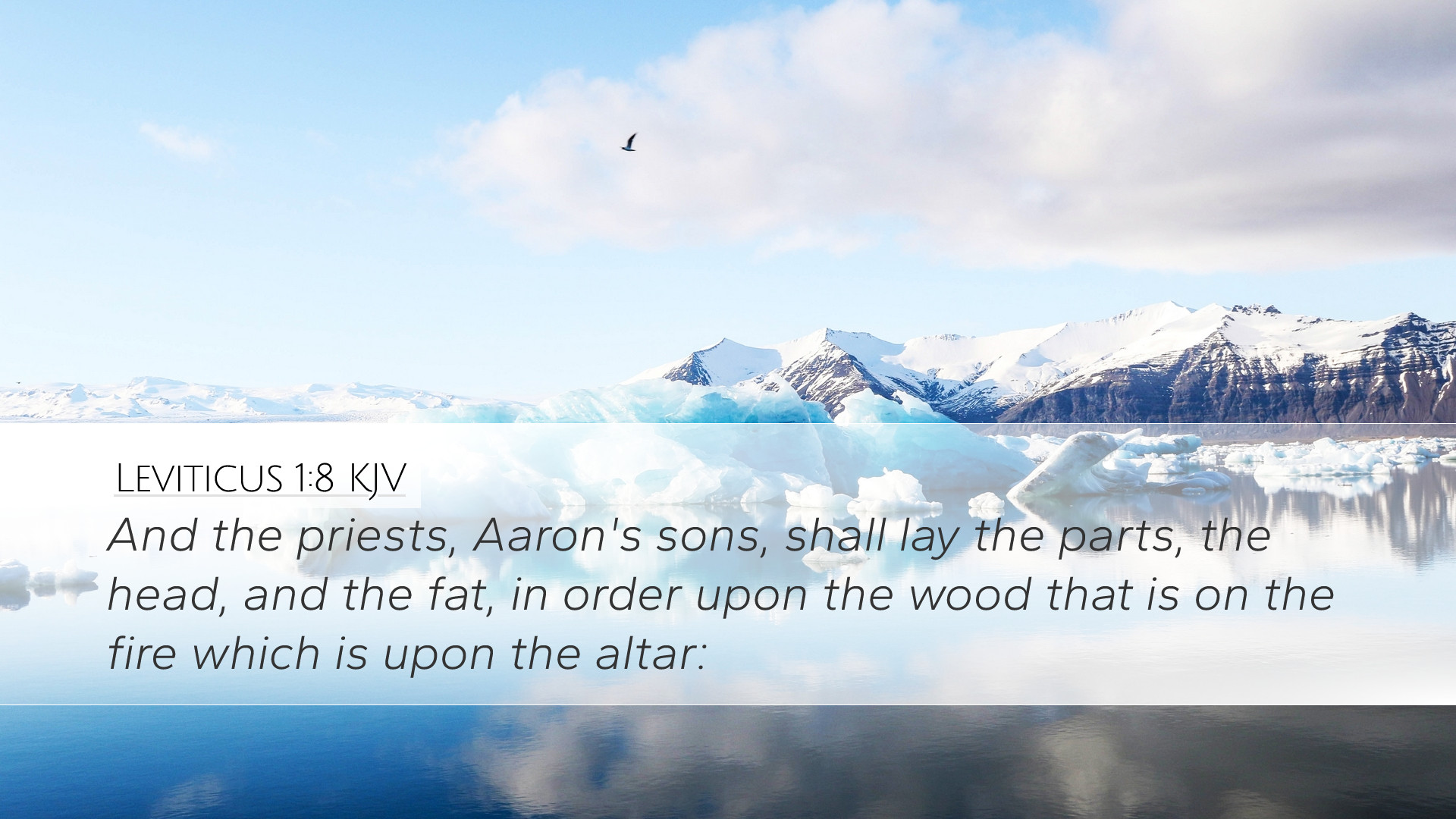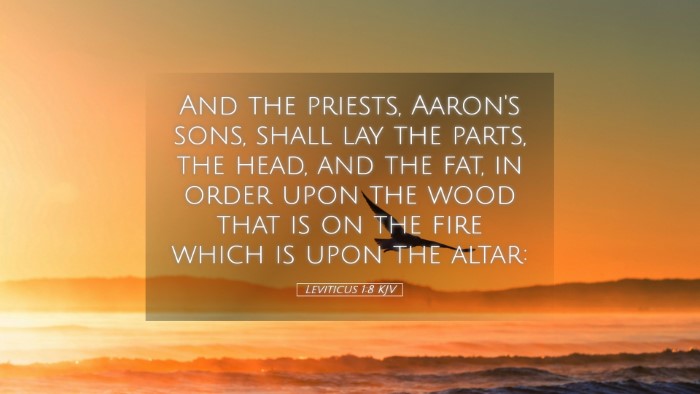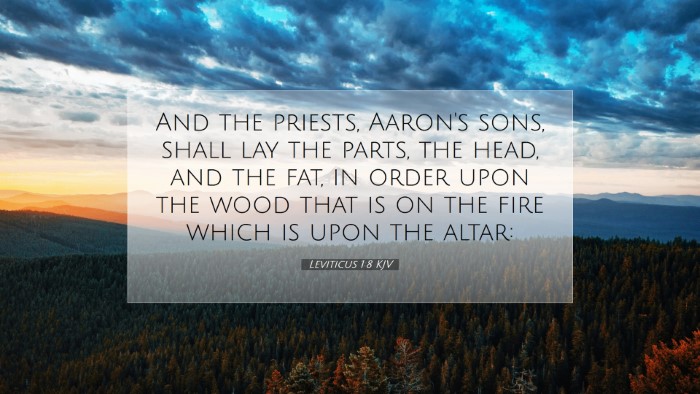Commentary on Leviticus 1:8
Verse Reference: Leviticus 1:8
“And the priests, Aaron’s sons, shall lay the parts, the head, and the fat, in order upon the wood that is on the fire which is upon the altar.”
Overview
Leviticus 1:8 falls within the larger context of the sacrificial system established for the people of Israel. This verse details the role of the priests in the burnt offering, underscoring significant themes of order, holiness, and divine instruction.
Insights from Commentaries
1. Matthew Henry's Commentary
- Significance of Order: Matthew Henry emphasizes the importance of order in the offerings. The phrase “in order” indicates that God values not just the offering itself but the manner in which it is presented. The burnt offering reflects the worshiper’s complete dedication to God, symbolizing the surrender of the entire person to Him.
- Role of the Priests: Henry highlights the function of the priests, underscoring their necessary mediation between God and the people. They are charged with ensuring that sacrifices are performed in accordance with God’s commands, which has implications for the broader understanding of holy service and reverence in worship.
- Symbolism of Fire: The fire on the altar represents God's consuming holiness. By laying the parts of the animal on the fire, there is a visual representation of the sacrifice being accepted by God, foreshadowing the ultimate sacrifice of Christ, the Lamb of God.
2. Albert Barnes' Notes on the Bible
- Understanding the Burnt Offering: Barnes elaborates on the nature of the burnt offering, indicating that it was a voluntary act of worship, demonstrating the worshiper’s devotion and reverence. It allowed individuals to express their commitment to Yahweh.
- Arrangement of Parts: He points out the meticulous arrangement of the animal parts as prescribed; this attention to detail reinforces the notion that God desires purity and precision in worship. It reflects on the holiness of the worship space and the worshipers’ approach to God.
- Priestly Functions: The involvement of Aaron’s sons signifies the establishment of a sacred lineage, emphasizing the continuation of the priestly duties. Barnes notes the importance of the priestly office in maintaining right worship and conducting sacrificial acts.
3. Adam Clarke's Commentary
- Theological Implications: Clarke reflects deeply on the theological implications of the burnt sacrifice. It is not merely a ritual but an act that symbolizes atonement and reconciliation with God. The act of laying the parts on the altar signifies both death and the hope of communion with the Divine.
- Teaching on Sacrifice: Clarke presents the burnt offering as a type of Christ’s sacrificial death. In laying the head and fat on the wooden altar, it suggests the complete acceptance and holiness expected in Christ’s offering, which ultimately fulfills the sacrificial system of the Old Testament.
- Focus on Holiness: Emphasizing holiness, Clarke points out that the act of sacrifice is not only about the sacrifice itself but about the heart condition of the worshiper. This reflects the New Testament teaching where God desires heartfelt worship rather than mere external observance.
Thematic Reflections
The examination of Leviticus 1:8 through various commentatorial lenses reveals several profound themes:
- Divine Order: The structured requirements for sacrifices indicate that God is not a God of chaos but of order. Every detail matters when approaching Him, which can serve as a reminder for contemporary worship practices.
- Priesthood and Mediation: The priestly role emphasizes the concept of mediation. In light of New Testament revelation, Jesus is seen as the ultimate High Priest who mediates between God and humanity, setting the stage for understanding the sacrificial system in context.
- Holiness and Sacrifice: The sacrificial system exposes the intrinsic human need for atonement and signifies God’s provision for restoring fellowship. It invites reflection on personal and corporate worship where sacrifices of praise continue in the lives of believers.
Conclusion
Leviticus 1:8 beckons pastors, theologians, and students to understand the weight of worship expressed through sacrifice and the role of the priesthood in leading the people towards God. As we study this passage, the call to holy living, the necessity of order in worship, and the ultimate sacrifice portrayed in Christ’s death become increasingly significant, providing a rich field for theological reflection and application in the lives of believers.


